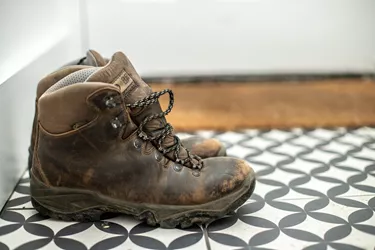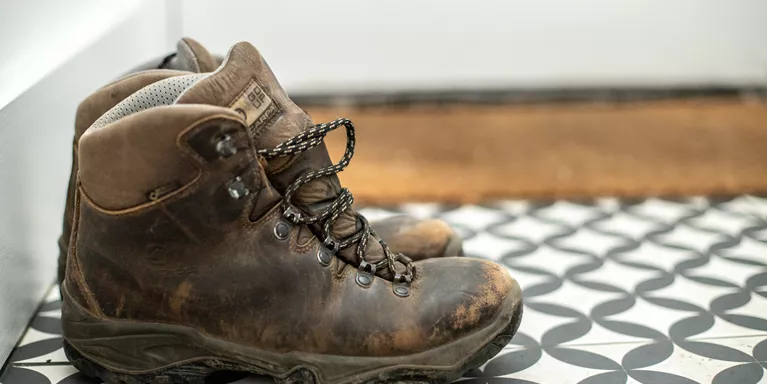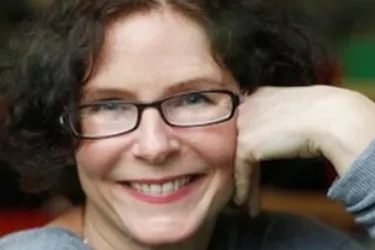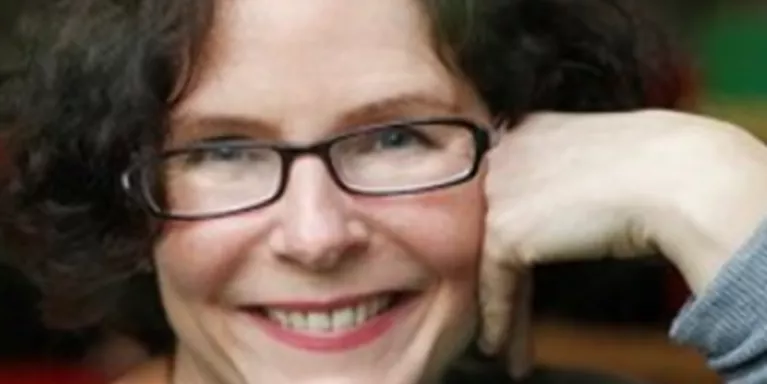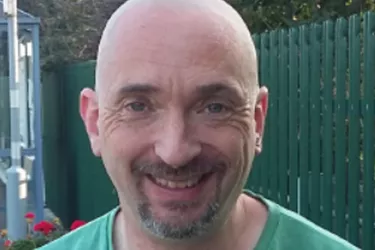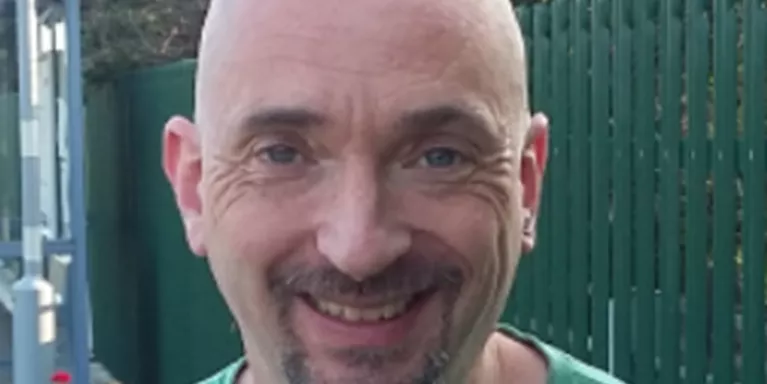Homeless with PTSD - how drumming helped me through
After suffering from sexual abuse as a child, Matt developed PTSD and a host of other mental health problems. Today, he’s taking on a world record in aid of Mind to show appreciation for the support he received.
It’s fair to say that when people look at me they have no idea of my story. I asked some of my friends their opinion on how I seem, they told me I was presentable, that I speak well, have a good range of vocabulary and come across as confident, articulate and funny. But if you cut me in half, written through me in bright letters like a stick of rock you’d see the words childhood sexual abuse victim.
My abusers were my father and a friend of his. They both passed away before they could be held accountable for their actions.
The person I presented to the world was something I always wanted to be, and that worked well for a long time. I chose jobs which always kept me on the move and became a larger-than-life figure, because that was the best smoke and mirrors style distraction for both myself and everyone else. Ultimately I was kidding no one.
Eventually, fate caught up with me in the form of a new relationship and an instant pregnancy. Now I was going to be a dad and there was no more lying, running away or blinding people with glitzy stories of what I’d done and where I’d been – I had a pregnant girlfriend and an unborn child to be there for – and that was the scariest thought imaginable to me. On the one hand, all the escape routes were still open, but my determination to be a positive force in my children’s life was the reason I stayed, tried to be the person my new partner needed and work through my issues.
"My determination to be a positive force in my children’s life was the reason I stayed and tried to work through my issues."
My daughter arrived and the cracks were already appearing – trying to be a totally new, honest, accountable person wasn’t what I was used to. I had to unlearn decades of learned behaviours and thought patterns and it eventually took its toll when we split up 18 months later.
After a two year downward spiral which took me to some incredibly dark places, my girlfriend and I managed to work out our differences and try again. I moved back in and got a proper mental health diagnosis for the first time in my life. The results were that I had complex PTSD, borderline personality disorder, emotional dissociation disorder, depression and anxiety.
Six months later things were going well and we found out that we were going to be parents again. By now I was receiving constant mental health support, attending counselling (both peer groups and 1-2-1 support) but I’d been signed off work to allow me to concentrate on my mental health.
Our second daughter was born and although my issues were much improved, the weight of the journey we had both been through was starting to show. A year later and as much as we clearly both loved our children, things weren’t right with us as a couple. After an explosive argument I found myself leaving the house again – but this time, because I hadn’t worked for some 18 months and had no savings, I was homeless.
I fell into the system and found out very quickly that as much as there are a lot of people who want to help, resources are thin on the ground and even though I thought I was a priority with my now very precarious mental health, the council didn’t agree and I ended up at the Harrogate Homeless Project. If they hadn’t stepped in and helped me I’d have been sleeping rough.
"After an explosive argument I found myself leaving the house again – but this time, I was homeless."
I stayed at the hostel for a month while they sorted out a room in a house share which allowed me the time to find a new support network, and one place very quickly became my new home-from-home, The Acorn Centre in Harrogate, run by Mind.
I joined the mindfulness colouring group, the creative writing class and the centre’s band which re-invigorated my love of drumming. I’ve played since I was about five years old and it’s probably my greatest and oldest form of therapy.
Drumming is easy to do and hard to master. Anyone can pick up a pair of sticks and get the satisfaction of making a noise, find a mindful moment in trying to stay in time with the beat, concentrate on both the accent and rhythm they are trying to achieve and in this form, drumming is creative, calming, expressive and a great way to release tension and stress.
"Anyone can pick up a pair of sticks and get the satisfaction of making a noise - drumming is creative, calming, expressive and a great way to release tension and stress."
A few years before, I was browsing online and found a video from a guy in Portugal who had just set the world record for the Longest Drum Marathon by an Individual – at 133 hours! I thought I’d love to have a go at beating that, but my mental health wasn’t where it needed to be and the logistics were made harder with having a family, so it never got off the ground.
Talking to the guys at the Acorn Centre it started to become more apparent that this was actually the perfect time for me to attempt this, and I could help out the charities who had helped me when I needed it too.
So, here I am, planning a Guinness World Record attempt for October 2017. I’ll be playing a constant 12 hour shift then taking a 1hr break until I get past the new record which has just been posted of 145hrs but hopefully I’ll make it to my target of 170hrs.
And after this? Some say that I’ll probably never want to see a drum again, but I’m actually setting up a drum group for mindfulness and therapy called Beat It! and I hope that far from being the end of the story it’s just the beginning of a new chapter.
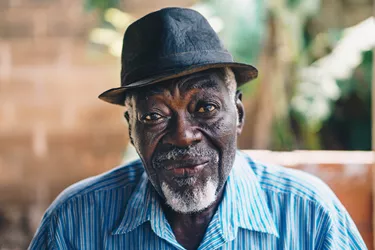

Information and support
When you’re living with a mental health problem, or supporting someone who is, having access to the right information - about a condition, treatment options, or practical issues - is vital. Visit our information pages to find out more.
Share your story with others
Blogs and stories can show that people with mental health problems are cared about, understood and listened to. We can use it to challenge the status quo and change attitudes.










